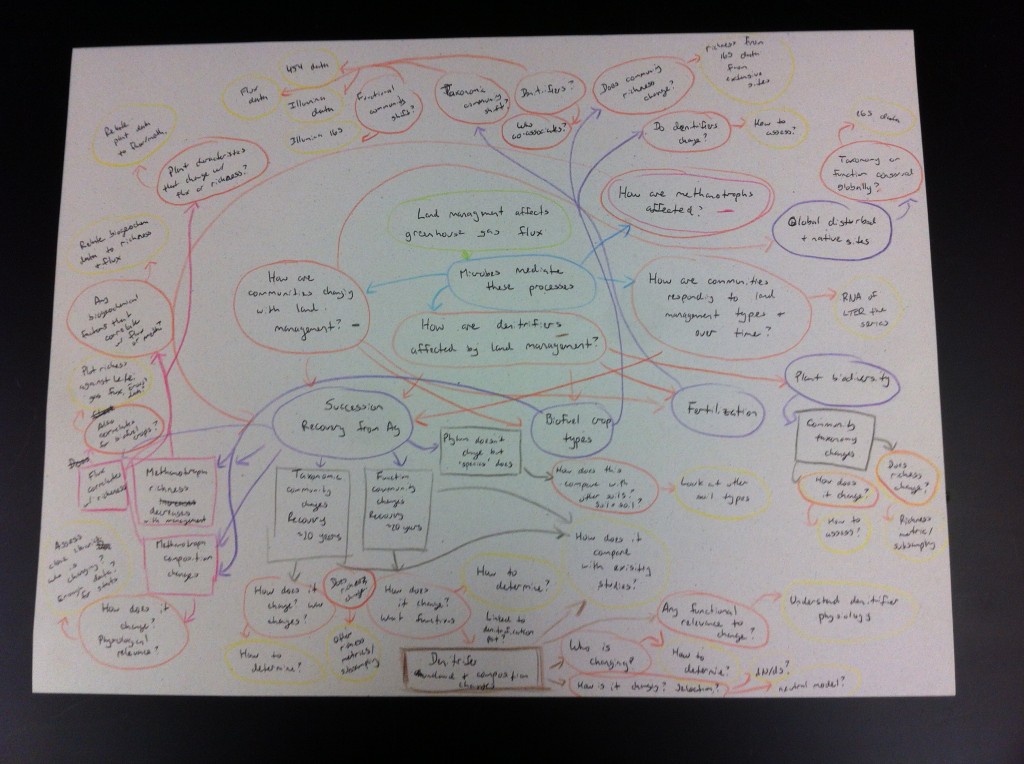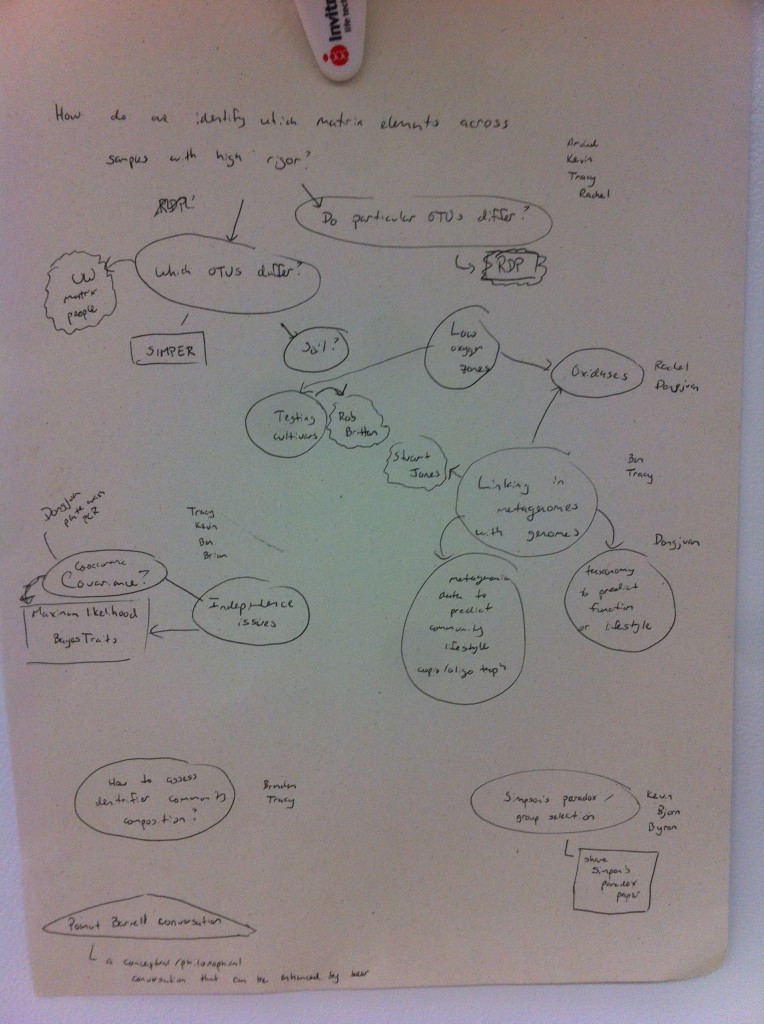Last week in the discussion, we brought up the idea of learners creating a concept map of their own research and bringing that to the first day of class. Then the learners can see where, in their concept map of their research, SWC principles can fit in. The idea would be to be able to integrate SWC concepts into a learner’s existing framework. Additionally, teachers could start the class by looking at people’s concept maps. Then we would have an idea of where people were coming from. We also might be able to create groups based on people having similar concept maps, or similar types of situations where SWC concepts could apply.
Recently, we tried the idea of concept maps in our lab. The idea was that everyone in the labis working on projects and papers, and we’ve seen glimpses of those papers with figures in lab meetings, but we thought it might be goodto get everyone together to see what everyone is working on and where we might be helpful to each other.
The assignment was tocome to lab meeting with a conceptual overview of your project (or projects) and the subtopics within them, what you’ve solved, what you’re working on. One approach to this might be a concept map (http://en.wikipedia.org/wiki/Concept_map) or a mind map (http://en.wikipedia.org/wiki/Mind_map). It’s a way of approaching what you know about a concept and can highlight what still needs to be done. You could also just make some text, with the motivation for the project as a starting sentence and what you know or are working on as bullet points.
During the process of making my concept map, I was able to see areas where I could solve a problem once and apply it in multiple situations. I also could see what I still had to do and identify the sticking points to doing them. This is what I wrote.
The shapes and colors are
circles: background, questions or things to do
squares: facts that we’ve established (different colored squares are facts acquired on different projects)
green: background, motivation for the projects
blue: background, basis for the projects, why we’re choosing to approach the question the way we are
red: questions related to the motivating statement
purple: different types of systems, in this case, different types of land management, and those for which I have data
yellow: methodological questions, sticking points that I need to figure out how to do
The arrows link facts and questions to different land management strategies, and questions to facts or to do items (methodological questions)
I’m not really sure this is the way to do a concept map, but it did help me identify what I needed to do and saw where I was asking the same methodological questions for different datasets or questions.
Everyone in lab presented their concept maps and during that meeting, I took notes and drew a new set of concept maps identifying places where people’s projects overlapped and where we might form working groups of a few lab members to address those particular question. There seems to be no point in us each solving them on our own, and we have different backgrounds, so a diverse perspective could help. That set of concept maps is here (see it hanging here on one of our refrigerators):
I don’t know how helpful all of this is for SWC.
However, my comment from last week came from a not-computationally-oriented lab member who knows that large data and data analysis is the future/present of biology and is therefore taking a computational biology course that is very hands on and designed for just this type of training. Nonetheless, he said that on the first day, he walked in and didn’t know what he was going to do with this. How was learning the bash shell or writing scripts in Python going to help him? He therefore wasn’t that excited or motivated to do the homeworks, even though he knew it was ‘good for him’. At the second lecture it was explained that through this course and learning the material, he’d be able to do X, Y and Z. It turned out those were exactly the things he wanted to be able to do! So, now he’s excited about the course and seeing where his new skills can be applied as he goes along.
So, I thought, what if every learner came in thinking about their research and then could see how the lessons we taught fit in with what they wanted to accomplish, or goals of just being a good scientist (e.g. data reproducibility). Would that motivate someone more to learn? Would it help them retain what they had learned? I think studies show that you retain information better when you have an existing framework for the information. That’s also why people with one political opinion keep acquiring information that supports their position. The data being presented that supports their opinion is easier to integrate into their existing mindset.
I’d be interested to hear thoughts on if you thought this type of approach would be reasonable or helpful. Also, would it only work if your audience was closely enough related in discipline, or only if they were more diverse?

